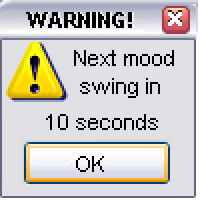Depression...When The Black Dog Rears Its Head...
 Shoshin
No one in particularNowhere Special Veteran
Shoshin
No one in particularNowhere Special Veteran
I had started on this thread earlier, then left it...But @Zero 's post in another thread
I do feel for him as much of what he has said sounds like wilful self-sabotage and in many of his posts he expresses himself in such an insular way as to suggest, cumulatively, that he's perhaps depressed.
...prompted me to start it...
In the past when a person was exhibiting signs of "depression " they were often told (with best intentions) to "snap out of it...buck their ideas up" which did nothing to help the person that was suffering, only making them even more depressed,increasing the feeling of insecurity & uselessness...
Nowadays most of us have a better understanding when it comes to dealing with depressed people, we have developed more patience & compassion when it comes to understanding their condition ...
But this is not to say that we always pick up on the signs straight away, (we may have personal issues that we are also working on ) at time we might confuse the person's depression with the run of the mill blues AKA mood swings...

....and expressing our own frustration with the person (whom we might feel is just being inconsiderate & moody) can contribute to their ongoing suffering...hence why it's important to keep our own emotions in check and not let our frustration get the better of us...easier said then done ...hence why we practice the Dharma...
Depression As A Systemic Disease
Most people with depression don't seek help or receive it. They may feel it is a moral failing on their part that they feel the way they do. In this way, referring to depression as a systemic disease may help to remove some stigma from this complex disorder.
How does a meditator deal with episodes of major depression?
I feel it is crucial to be open to anti-depression medication. Although times have changed and meditators these days do seem more open to taking medication when needed, it can still be a sticking point for some who think they should be able to free themselves without medication or think of themselves as “less than” for having to medicate, believing they should be able to rely solely on Buddhist practice.
This is not a wise and openhearted attitude. Antidepressants can be an enormously useful sacred medicine meant to balance that which is unbalanced. Taking them can be compassionate action, enabling someone who is incapacitated from this kind of suffering to meditate in a fruitful way. It is true that the issue of medication is complex and controversial, and that while antidepressants seemed some years ago to be a miracle of sorts, this is not always so. But for many, they are clearly helpful.






Comments
What a lovely post, @Shoshin. Thanks for putting it up ?
One thing that people with depression can feel is that they’re a huge burden on the people around them, especially the people they have the closest relationships with. How can you tell your loved ones that you’re having ideas of suicide? As much as you love them, these ideas arise, just like other ideas, depending on your karma/psychology. It can be very painful to share these things, and greater awareness of depression generally can help.
I think it is useful to make a distinction between feeling “a little down” and being clinically depressed. Doctors handle a 10-point scale on which a 1 or a 2 is not very depressed, and a 5 or a 6 may signal a moderate clinical depression. For those who are properly depressed, it seems to turn into a disease of the brain and medication may be useful.
But there are many holistic approaches which are as effective as medication. For example running for half an hour in the mornings, when combined with meditation, was proven in a recent study to be as effective as antidepressants for 50% of the participants.
Similarly diet and nutrition are another area of depression treatment which is under-utilised. If you find a good nutritionist or naturopath doctor, they will often tell you that low-level inflammation or allergies may be at the root of your depression. So getting an allergy screening done and working with them to set up a good diet for you may also help you.
Of course, there are cases where people benefit from antidepressants. But I wouldn’t go looking for it as a first solution for a mild depression, it’s more like a last resort for people who have exhausted the options of a change in lifestyle.
I found the screening of this to be quite interesting when it was on a few days ago...
https://depressionanxietyseries.com
Thanks @adamcrossley
In my work (helping people with budgeting issues) I come across people suffering from depression (at times quite suicidal ) ... Dharma practice has greatly helped me when dealing with vulnerable/at risk people, especially the practice of patience and the ability to be open and non-judgmental....Sometimes that's all it takes to reduce the immediate risk...
This. For phases of "feeling down", exercise, as Kerome pointed out, can help. For more chronic "down" episodes, starting a gratitude journal can help, where every day, you write down one thing you can be grateful for. This forces you to look at the positive in life, and after a month, you have 30 things in your life to be grateful for!
For more serious depression, sometimes early life trauma can be the underlying cause. This can be anything, from childhood abuse or neglect to medical trauma in the earliest years, setting one up for difficulties later on life, to the dead of a parent in childhood and the sudden change in family dynamics and standard of living such an event can cause. I've known people, who were able to go off their anti-depressants after getting effective therapy, support and nurturing for early trauma.